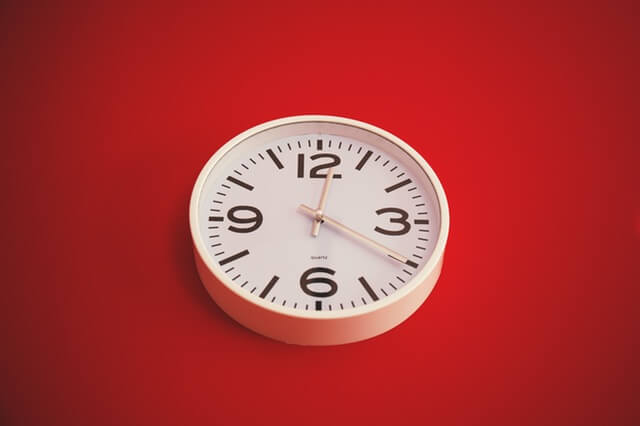 Most people are familiar with the terms diurnal and nocturnal. Diurnal means active during the daytime, while nocturnal means active during the nighttime. Together the two make up a 24-hour cycle known as a day. But, in Traditional Chinese Medicine, this 24-hour cycle is viewed as much more than just a day in the life. The 24 hours of the day are viewed as increments of time and every two-hour section is associated with a specific energetic meridian that runs through the body. This is known as the Qi clock.
Most people are familiar with the terms diurnal and nocturnal. Diurnal means active during the daytime, while nocturnal means active during the nighttime. Together the two make up a 24-hour cycle known as a day. But, in Traditional Chinese Medicine, this 24-hour cycle is viewed as much more than just a day in the life. The 24 hours of the day are viewed as increments of time and every two-hour section is associated with a specific energetic meridian that runs through the body. This is known as the Qi clock.
Do you wake up every night or every morning about the same time? Have you ever wondered why? Some people call that an internal clock. In Chinese medicine, this gives a much deeper look into how the body functions though. Chinese medical theory divides the body based upon the 12 energetic meridians. Each of the meridians is assigned a two-hour time slot. For example, the liver meridian is associated with the hours of 1 a.m. to 3 a.m. If you wake up during this time frame, then there is an issue with your liver meridian. So knowing this information can be very important to an acupuncturist/Chinese medicine practitioner.
During a 24-hour period, your energy or Qi (pronounced “chee”) moves through the organ systems in two-hour intervals. Qi draws inward to help restore the body between the hours of 1 a.m. and 3 a.m. The liver cleanses the blood and performs other functions, such as getting the blood ready to travel outward into the rest of the body. Over the next 12 hours, Qi cycles through the organs that assimilate, digest and eliminate food through the body or our diurnal organs. By mid-afternoon, the body begins to slow down again in preparation for the nocturnal phase. The nocturnal phase is all about restoring and maintaining. So when one organ system is at its peak, its counterpart, on the opposite side of the clock is at its lowest point. An example is 7 a.m. to 9 a.m., which are the hours of the stomach. This is when the stomach is at its peak and also why it is recommended to eat a big breakfast. On the opposite side of the clock lies the pericardium, which is associated with the pituitary, hypothalamus and reproductive organs. The pericardium is at its weakest point between the hours of 7 a.m. and 9 a.m.
Here’s a brief summary of the 24 hour Qi cycle:
- 3 a.m. to 5 a.m. is Lung time
- 5 a.m. to 7 a.m. is Large Intestine time
- 7 a.m. to 9 a.m. is Stomach time
- 9 a.m. to 11 a.m. is Spleen time
- 11 a.m. to 1 a.m. is Heart time
- 1 p.m. to 3 p.m. is Small Intestine time
- 3 p.m. to 5 p.m. is Urinary Bladder time
- 5 p.m. to 7 p.m. is Kidney time
- 7 p.m. to 9 p.m. is Pericardium time
- 9 p.m. to 11 p.m. is Triple Burner time
(associated with the thyroid and adrenals) - 11 p.m. to 1 a.m. is Gall Bladder time
- 1 a.m. to 3 a.m. is Liver time
So if you have recurring problems at the same time every day, then there is a good chance that the organ/meridian associated with that time is in distress. This is why Traditional Chinese Medicine practitioners ask so many questions and also why they look at the body as a whole instead of just one particular organ. By understanding that every organ/energetic meridian has a maintenance schedule to keep daily, you can then treat your body properly so you achieve the ultimate health and well-being and acupuncture can help you achieve that goal. Acupuncturists treat the body based on things like your symptomology, your pulses, your tongue and the 24-hour Qi clock indications you exhibit. The goal is to bring the body back into balance and knowing when the meridians are at their peaks and valleys is a great place to begin.



